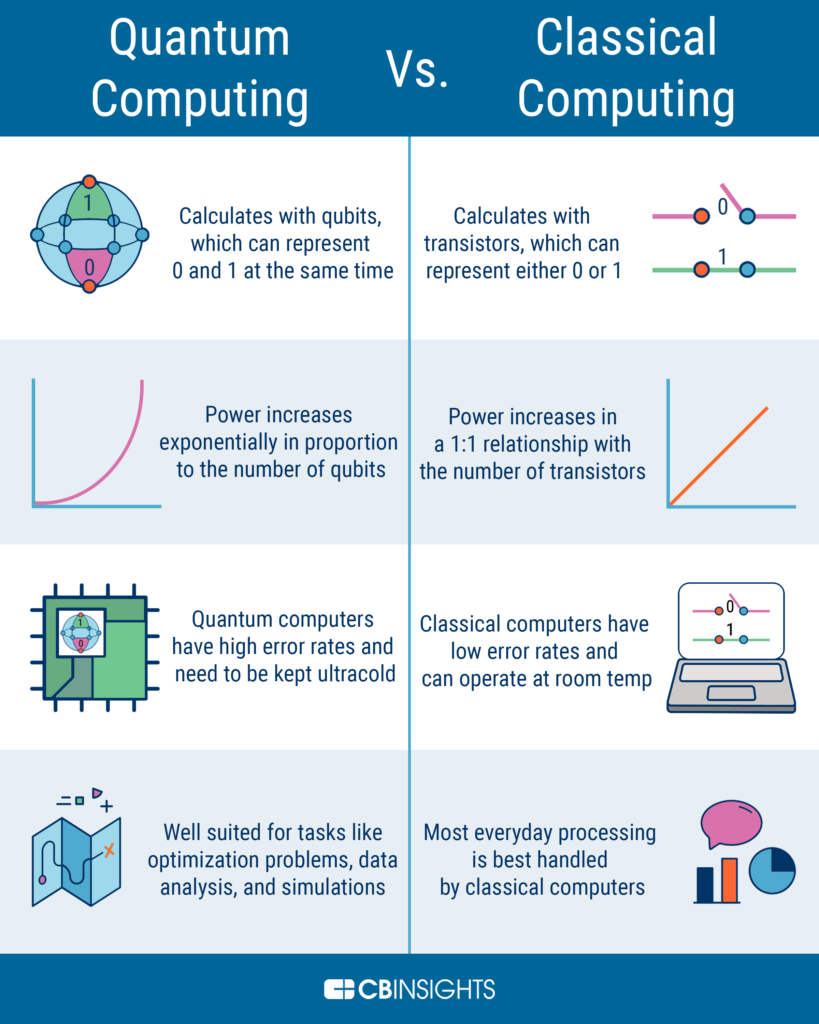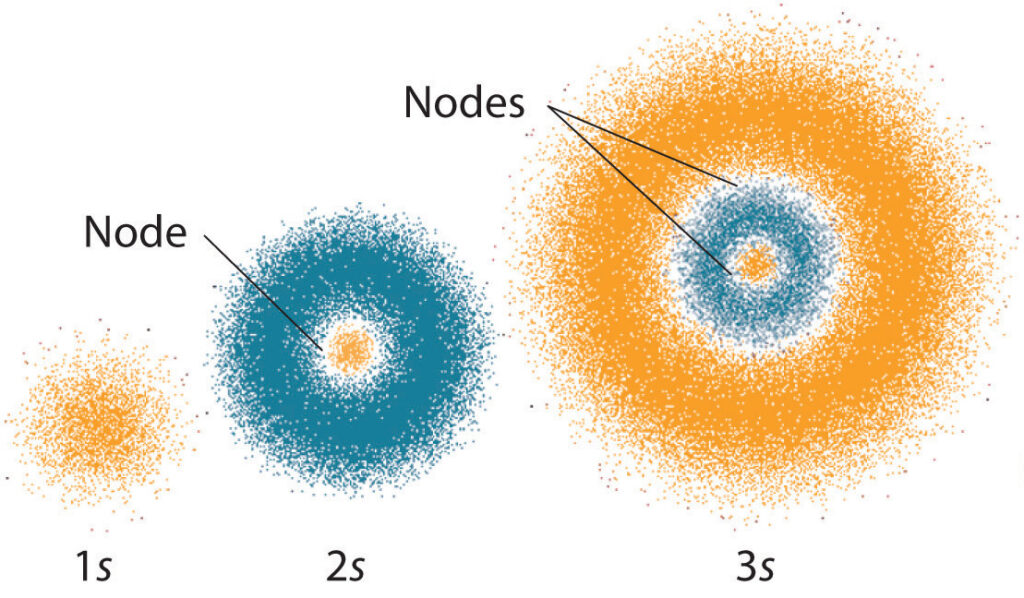Quantum computing has emerged as a promising new technology that holds the potential to revolutionize the way we process and store information. Unlike classical computing, which relies on bits that can only exist in one of two states (0 or 1), quantum computing utilizes quantum bits, or qubits, that can exist in multiple states simultaneously. This unique characteristic of qubits allows quantum computers to perform complex calculations much faster than their classical counterparts. However, the algorithms used in quantum computing are vastly different from those used in classical computing, and require a deep understanding of quantum mechanics and mathematics.
One important area of mathematics that is essential to the development of quantum algorithms is discrete mathematics. Discrete mathematics is the study of mathematical structures that are countable or finite, such as graphs, sets, and sequences. It provides a foundation for many important algorithms used in classical computing, such as encryption and data compression. However, the application of discrete mathematics to quantum computing is still in its early stages, and researchers are actively working to develop new algorithms and techniques that will enable quantum computers to solve problems that are currently intractable with classical computers. In this article, we will explore the similarities and differences between algorithms used in quantum computing and discrete mathematics, and the challenges that researchers face in developing algorithms for this emerging technology.
Discrete mathematics and algorithms for quantum computers are two separate branches of mathematics. Quantum algorithms use the principles of quantum mechanics to solve computational problems more efficiently than their classical counterparts. They offer advantages in terms of speed and accuracy, and are used in areas such as cryptography, machine learning, and more. In contrast, discrete mathematics focuses on the study of finite sets, and is used in areas such as graph theory, counting, and optimization.

Algorithms for Quantum Computers and Discrete Mathematics
Quantum computers are a rapidly emerging technology that is revolutionizing the way we think about computing. They are capable of performing calculations and operations that are impossible for classical computers. In order to take full advantage of the power of quantum computers, algorithms must be developed that are specifically tailored to the unique properties of quantum systems. This article will explore how algorithms for quantum computers compare to algorithms used in discrete mathematics.
Quantum Computing Algorithms
Quantum computing algorithms are designed to take advantage of the unique properties of quantum systems. These include the ability to perform operations on multiple qubits at once, as well as the ability to store and manipulate information in superposition states. These properties allow quantum computers to perform calculations and operations in a much more efficient manner than classical computers.
Quantum algorithms are designed to exploit the properties of quantum systems in order to solve problems. One of the most popular quantum algorithms is the Shor’s algorithm, which is used to factor numbers in polynomial time. Other algorithms such as Grover’s algorithm can be used to search unsorted databases in a fraction of the time it would take a classical computer. The development of quantum algorithms is an active area of research and is continuously advancing as new quantum technologies emerge.
Discrete Mathematics Algorithms
Discrete mathematics is a branch of mathematics that deals with objects that can be counted or enumerated. It is used to study relationships between objects that are discrete, or of finite size. Algorithms in discrete mathematics are designed to solve problems that involve discrete objects, such as graphs, trees, and networks. These algorithms are typically designed to solve problems quickly and efficiently.
One of the most popular algorithms in discrete mathematics is the Dijkstra’s algorithm, which is used to find the shortest path between two points in a graph. Other algorithms such as the Bellman-Ford algorithm can be used to find the minimum spanning tree of a graph. Discrete mathematics algorithms are used in a wide range of applications, from network routing to bioinformatics.
Comparison of Algorithms
Quantum computing algorithms are designed to take advantage of the unique properties of quantum systems, while discrete mathematics algorithms are designed to solve problems that involve discrete objects. While both types of algorithms can be used to solve similar problems, quantum computing algorithms are typically more efficient than discrete mathematics algorithms. This is due to the ability of quantum computers to perform operations on multiple qubits at once and the ability to store and manipulate information in superposition states.
However, quantum computing algorithms are still in an early stage of development and their efficiency is limited by the number of qubits available. On the other hand, discrete mathematics algorithms are well-established and have been used for many years. As a result, they are typically more reliable and efficient than quantum computing algorithms.
Frequently Asked Questions
Algorithms for quantum computers are a form of computing technology that use the principles of quantum mechanics to increase the processing power of computers. They are different from discrete mathematics, which is a branch of mathematics dealing with the study of finite, discrete structures.
What is the difference between algorithms for quantum computers and discrete mathematics?
Algorithms for quantum computers are different from discrete mathematics in that they use quantum principles to increase the speed and accuracy of computing tasks. Quantum algorithms use the principles of quantum mechanics, such as superposition and entanglement, to speed up certain computations. In contrast, discrete mathematics is a branch of mathematics that deals with finite, discrete structures, such as graphs and sets.
Discrete mathematics is largely concerned with the study of finite structures, such as graphs and sets, and their properties. It is used in many areas of mathematics, including combinatorics and number theory, and is also used to solve problems in computer science. In contrast, algorithms for quantum computers are used to increase the speed and accuracy of computing tasks, by taking advantage of the principles of quantum mechanics, such as superposition and entanglement.

In conclusion, the world of quantum computing and discrete mathematics is complex but fascinating. While both fields deal with calculations and problem-solving, the approach and methods used by each are vastly different. Algorithms for quantum computers operate on the principles of quantum mechanics, allowing for the processing of vast amounts of data simultaneously. Discrete mathematics, on the other hand, focuses on the study of discrete structures and relationships between objects.
As quantum computing continues to advance, it will undoubtedly bring about new discoveries and possibilities for problem-solving. The integration of quantum algorithms and discrete mathematics will undoubtedly play a significant role in the development of future technologies. As we continue to explore the boundaries of quantum computing and discrete mathematics, it is clear that the potential for innovation and progress is limitless.



